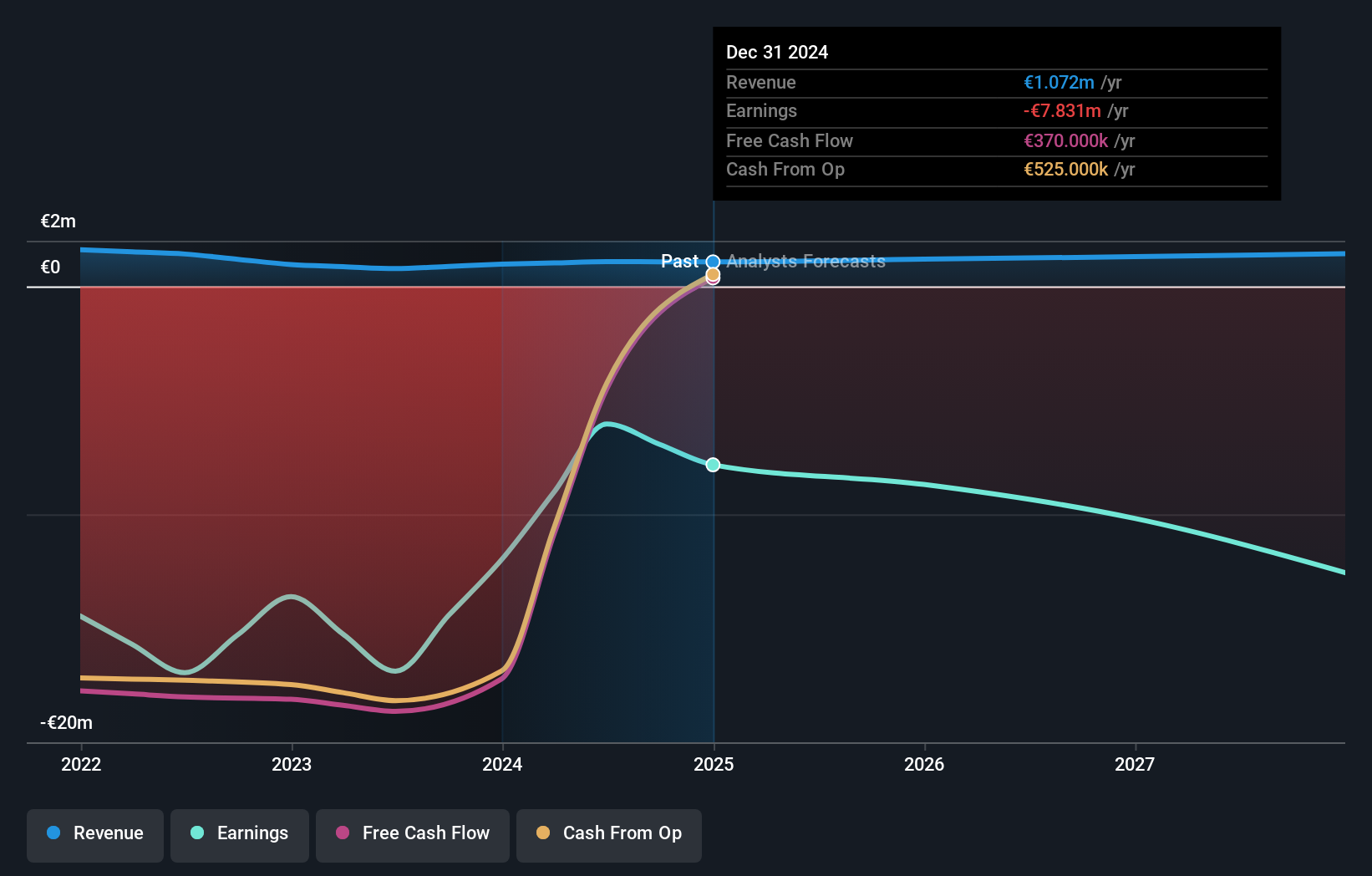AB Science S.A.'s (EPA:AB) market cap rose €15m last week; individual investors who hold 45% profited and so did insiders

Key Insights
- Significant control over AB Science by individual investors implies that the general public has more power to influence management and governance-related decisions
- 51% of the business is held by the top 3 shareholders
- 31% of AB Science is held by insiders
A look at the shareholders of AB Science S.A. (EPA:AB) can tell us which group is most powerful. The group holding the most number of shares in the company, around 45% to be precise, is individual investors. That is, the group stands to benefit the most if the stock rises (or lose the most if there is a downturn).
While individual investors were the group that reaped the most benefits after last week’s 16% price gain, insiders also received a 31% cut.
Let's delve deeper into each type of owner of AB Science, beginning with the chart below.
Check out our latest analysis for AB Science

What Does The Lack Of Institutional Ownership Tell Us About AB Science?
We don't tend to see institutional investors holding stock of companies that are very risky, thinly traded, or very small. Though we do sometimes see large companies without institutions on the register, it's not particularly common.
There are multiple explanations for why institutions don't own a stock. The most common is that the company is too small relative to funds under management, so the institution does not bother to look closely at the company. Alternatively, there might be something about the company that has kept institutional investors away. AB Science's earnings and revenue track record (below) may not be compelling to institutional investors -- or they simply might not have looked at the business closely.

Hedge funds don't have many shares in AB Science. The company's CEO Alain Moussy is the largest shareholder with 24% of shares outstanding. With 20% and 6.9% of the shares outstanding respectively, AMY SAS and Jean-Claude Marian are the second and third largest shareholders.
To make our study more interesting, we found that the top 3 shareholders have a majority ownership in the company, meaning that they are powerful enough to influence the decisions of the company.
Researching institutional ownership is a good way to gauge and filter a stock's expected performance. The same can be achieved by studying analyst sentiments. While there is some analyst coverage, the company is probably not widely covered. So it could gain more attention, down the track.
Insider Ownership Of AB Science
While the precise definition of an insider can be subjective, almost everyone considers board members to be insiders. Management ultimately answers to the board. However, it is not uncommon for managers to be executive board members, especially if they are a founder or the CEO.
Most consider insider ownership a positive because it can indicate the board is well aligned with other shareholders. However, on some occasions too much power is concentrated within this group.
Our information suggests that insiders maintain a significant holding in AB Science S.A.. Insiders own €33m worth of shares in the €107m company. It is great to see insiders so invested in the business. It might be worth checking if those insiders have been buying recently.
General Public Ownership
With a 45% ownership, the general public, mostly comprising of individual investors, have some degree of sway over AB Science. While this size of ownership may not be enough to sway a policy decision in their favour, they can still make a collective impact on company policies.
Private Company Ownership
It seems that Private Companies own 24%, of the AB Science stock. It might be worth looking deeper into this. If related parties, such as insiders, have an interest in one of these private companies, that should be disclosed in the annual report. Private companies may also have a strategic interest in the company.
Next Steps:
While it is well worth considering the different groups that own a company, there are other factors that are even more important. Be aware that AB Science is showing 5 warning signs in our investment analysis , and 1 of those doesn't sit too well with us...
If you would prefer discover what analysts are predicting in terms of future growth, do not miss this free report on analyst forecasts.
NB: Figures in this article are calculated using data from the last twelve months, which refer to the 12-month period ending on the last date of the month the financial statement is dated. This may not be consistent with full year annual report figures.
New: Manage All Your Stock Portfolios in One Place
We've created the ultimate portfolio companion for stock investors, and it's free.
• Connect an unlimited number of Portfolios and see your total in one currency
• Be alerted to new Warning Signs or Risks via email or mobile
• Track the Fair Value of your stocks
Have feedback on this article? Concerned about the content? Get in touch with us directly. Alternatively, email editorial-team (at) simplywallst.com.
This article by Simply Wall St is general in nature. We provide commentary based on historical data and analyst forecasts only using an unbiased methodology and our articles are not intended to be financial advice. It does not constitute a recommendation to buy or sell any stock, and does not take account of your objectives, or your financial situation. We aim to bring you long-term focused analysis driven by fundamental data. Note that our analysis may not factor in the latest price-sensitive company announcements or qualitative material. Simply Wall St has no position in any stocks mentioned.
About ENXTPA:AB
AB Science
A clinical-stage company, designs and develops novel drugs to various diseases with high unmet medical needs for inflammatory diseases, pathologies affecting peripheral and central nervous system, and cancers in France.
Moderate with imperfect balance sheet.
Market Insights
Community Narratives





